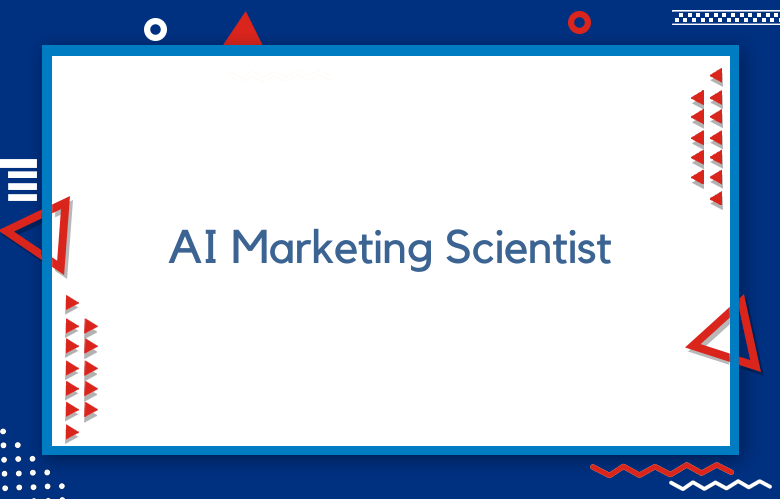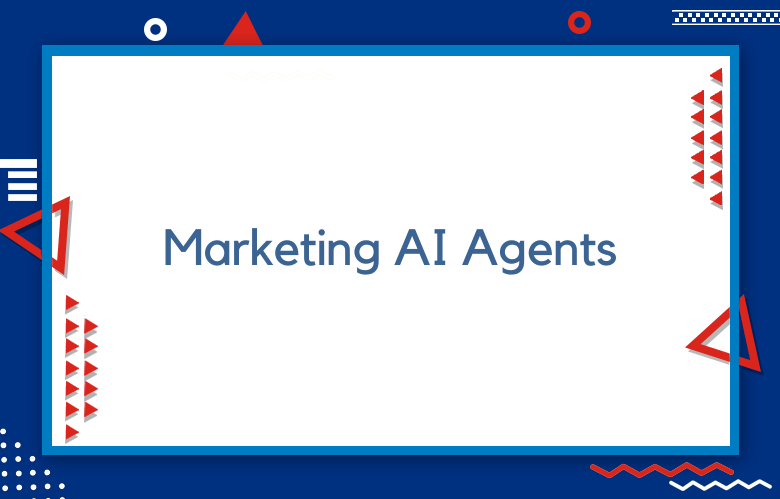The Rise of the AI Marketing Scientist: How Artificial Intelligence is Transforming the Field

Artificial Intelligence (AI) is quickly becoming integral to various industries, and marketing is no different. AI is transforming the marketing field, and it’s not hard to see why. AI algorithms can quickly collect and analyze vast amounts of data, providing marketers with insights into consumer behavior that were once impossible to obtain.
This has led to the emergence of a new marketing professional – the AI Marketing Scientist. We will explore how AI is transforming the marketing field and the rise of AI marketing scientists.
Innovation and technology have significantly transformed various industries, and marketing is no exception. With the advent of Artificial Intelligence (AI), marketing science is experiencing a significant shift. The AI marketing scientist has become the buzzword in today’s marketing landscape.
Integrating AI with marketing efforts tremendously benefits businesses, including precise targeting, personalization, lead generation, and automation. We’ll discuss AI marketing scientists’ rise, impact, and how AI transforms marketing.
Who is an AI Marketing Scientist?
An AI marketing scientist is a professional who bridges the gap between marketing and technology by applying advanced analytics, machine learning, and artificial intelligence techniques to understand consumer behavior better.
This role combines deep expertise in marketing principles and advanced data analytics with a working knowledge of modern AI and big data tools and platforms.
AI marketing scientists use data to drive insights and decision-making, making marketers more informed and targeted with their strategies.
They are also responsible for developing predictive models to help forecast future trends and recommend actions that lead to the desired business outcomes.
These professionals often develop and test new marketing technologies and improve existing ones.
The Skills and Knowledge You Need to Be an AI Marketing Scientist
Becoming an AI marketing scientist requires a unique set of skills and knowledge. Firstly, it is fundamental to have an in-depth understanding of data analytics, statistics, and data visualization tools.
This expertise allows AI marketing scientists to analyze large data sets, identify patterns, and generate insights that can be translated into actionable marketing strategies.
Knowledge of programming languages, such as Python, R, and SQL, is essential to manipulate data and build machine learning models.
These programming skills enable AI marketing scientists to develop predictive models that accurately forecast consumer trends and behavior, resulting in targeted marketing campaigns.
Moreover, AI marketing scientists must thoroughly understand marketing principles and consumer psychology. This understanding enables them to develop effective marketing strategies that resonate with target audiences, ultimately driving conversion rates and increasing revenue.
The Impact of AI on Marketing Careers: Are AI Marketing Scientists Replacing Traditional Marketers?
Artificial Intelligence (AI) has been a game-changing technology in various fields, including marketing. Its ability to make sense of large amounts of data, identify patterns and preferences of target audiences, and provide actionable insights has led to the emergence of a new role in marketing: the AI marketing scientist.
The job of an AI marketing scientist involves using AI technologies to understand customer behavior, develop predictive models, and design and execute data-driven marketing campaigns.
AI marketing scientists are well-versed in data science, statistical analysis, machine learning, and programming, enabling them to create new marketing strategies and tactics to drive business growth.
However, the rise of AI marketing scientists has raised concerns about the future of traditional marketers. Some experts predict that AI technologies will replace their roles entirely.
They argue that AI can perform many tasks that traditional marketers do, such as analyzing data, developing marketing strategies, and predicting customer behavior.
Ethical Considerations in AI Marketing: How to Ensure Responsible Use of AI in Marketing
As the advancements in Artificial Intelligence(AI) continue to reshape various processes, it has inevitably found usage in marketing strategies and advertising campaigns.
However, as AI marketing grows, ethical considerations should be taken seriously to ensure responsible use and avoid negative impacts on society.
One critical aspect that must be considered is transparency. Businesses must be upfront with their target audience about using AI technology in their marketing campaigns and how it would govern the messaging. Moreover, the algorithm used to analyze data and make decisions must also be disclosed to avoid harming the audience’s trust.
AI-Powered Customer Insights: How Marketing Scientists Are Using AI to Unlock Deeper Understanding of Customers
In today’s data-driven marketing age, businesses constantly seek new ways to gain insights into their customers’ behavior and preferences. One of the most promising avenues for achieving this goal is using artificial intelligence (AI).
Marketing scientists use AI-powered customer insights to unlock a deeper understanding of their customers and improve their marketing strategies.
AI algorithms can sift through enormous amounts of customer data and identify patterns and trends that would be impossible for humans to detect.
These insights can reveal details of crucial customer behavior, including purchasing habits, preferences, and interests. Analyzing this data allows businesses to tailor their marketing messages and offers to appeal more effectively to specific customer segments.
The Future of AI in Marketing: Trends and Predictions for the Next Decade
The marketing field continually evolves, with new technologies and strategies constantly emerging. One of the most promising and innovative developments in recent years is artificial intelligence (AI).
AI can revolutionize the way we approach marketing by enabling businesses to analyze and utilize vast amounts of data in previously impossible ways.
Looking ahead to the next decade, there are several key trends and predictions for the future of AI in marketing. One of the most significant developments will be the increasing use of AI-powered chatbots and virtual assistants.
These tools will allow businesses to provide more personalized and efficient customer support while automating specific tasks and processes.
The Intersection of AI and Creativity: How AI Marketing Scientists Can Enhance Creative Output
Artificial Intelligence (AI) is revolutionizing many industries and marketing is no exception. AI is streamlining processes, automating tasks, and even improving creativity.
The intersection of AI and creativity brings creative marketing to a new level by analyzing data, predicting trends, and generating personalized content. Marketing scientists use data to direct their creative output and optimize their campaigns for better results.
Advancements in AI have enabled marketers to gather insights and analyze consumer behavior. AI can analyze consumer trends and preferences to create targeted messaging and personalized content that resonates more with prospective customers.
For instance, an AI-powered platform can gauge customer interests and shopping habits in real-time, adjust product suggestions, and personalize email content accordingly.
AI Marketing Automation: How AI is Streamlining and Optimizing Marketing Workflows
AI marketing automation is revolutionizing the way businesses carry out marketing strategies.
AI algorithms, machine learning, and other advanced technologies have enabled marketers to streamline and optimize their marketing workflows while gaining valuable insights into customer behavior and preferences.
One of the key benefits of AI marketing automation is its ability to personalize marketing campaigns.
Using data analysis and predictive analytics, AI algorithms can generate highly targeted and personalized messages based on customer preferences and behavior. This makes it easier for businesses to reach their target audience, build brand loyalty, and increase conversions.
The Art and Science of AI-Powered Content Marketing: Generating Engaging, Relevant Content with AI
In today’s highly digital and competitive business landscape, content marketing has emerged as one of the most essential strategies for building a solid and loyal customer base.
However, creating engaging and relevant content that resonates with your target audience is easier said than done, especially in a fast-paced business environment. This is where AI-powered content marketing comes into play.
AI-powered content marketing leverages artificial intelligence to automate and enhance critical aspects of the content creation process.
It uses machine learning algorithms and natural language processing techniques to gather insights from customer data and analyze real-time content performance metrics. This, in turn, facilitates the creation of high-quality and highly targeted content that resonates with your audience.
The Role of AI in Real-time Marketing: How AI Marketing Scientists Are Helping Brands Respond to Consumer Behavior in Real Time
Real-time marketing has become more critical in today’s hyperconnected and digitalized world. Brands that monitor, analyze, and respond to consumer behavior in real time have a significant advantage over their competitors.
This is where Artificial Intelligence (AI) comes into play. AI enables companies to enhance their marketing strategies and personalize their messaging for specific audiences.
AI Marketing Scientists are leveraging the power of machine learning algorithms to monitor and collect data in real-time. This data is then analyzed to identify patterns, trends, and changes in consumer behavior, which can be used to optimize marketing campaigns, enhance customer experience, and boost revenue.
The Importance of AI Ethics in Marketing: Ensuring Responsible and Ethical Use of AI in Marketing Campaigns
Artificial intelligence (AI) is becoming increasingly important in marketing. With its ability to process vast amounts of data and automate processes, AI has the potential to revolutionize marketing campaigns and unlock new opportunities for businesses. However, with this power comes great responsibility.
AI must be used ethically, responsibly, and transparently. The stakes are high since AI biases can lead to discriminatory practices and unjustified decisions, damaging brands and jeopardizing consumer trust.
AI algorithms must respect ethical and legal norms that shield consumers against risks such as illegal profiling, hidden agendas, or manipulation.
AI ethics must uphold fairness, transparency, accountability, and human dignity. Ethical AI marketing should seek to reduce bias in data, ensure privacy and security, and generate human-friendly outputs.
The Rise of Voice Search and the Role of AI in Optimizing for Voice Queries
The rise of voice search has been a game-changer in the digital world, dramatically changing how people search for information.
Voice-based assistants have been gaining popularity as they are more accessible, faster, and more convenient than typing out a search query. As more people use voice search, it becomes crucial for businesses to optimize their content for voice-based questions.
The role of Artificial Intelligence (AI) in optimizing for voice search cannot be overstated. AI is the backbone of voice search technology and allows the query to be accurately understood, interpreted, and answered.
AI-powered assistants like Siri, Alexa, and Google Assistant have successfully catered to their users’ needs and demands. To leverage the potential of voice search, businesses must employ AI-powered conversational bots to enable their customers to interact with their brands using natural language.
Conclusion:
The emergence of AI marketing scientists is transforming the marketing field, providing businesses with new insights into consumer behavior and streamlining the marketing process.
As AI continues to evolve, the potential applications in marketing are vast, and companies that embrace this technology will have a competitive advantage in the marketplace. The future of marketing is AI-driven, and it’s time for businesses to adapt to this new reality.
Call: +91 9848321284
Email: [email protected]



